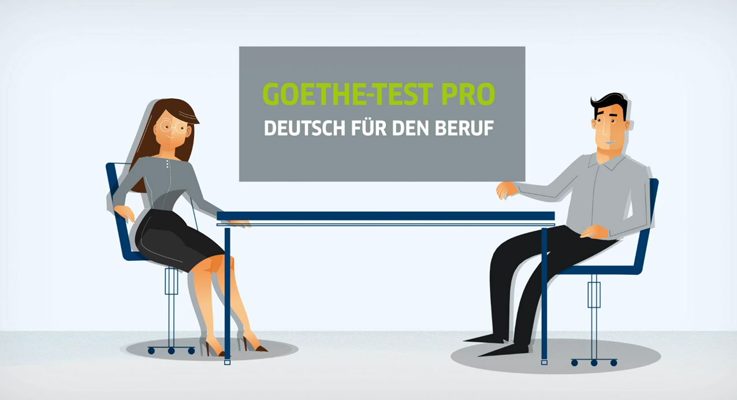Quality Standards
This is where you will find detailed information on what makes a good exam and how we continuously ensure and demonstrate the quality of our Goethe certificates.
A1-C2
German exams A1-C2
Would you like to book an exam at one of our exam centres or contact our colleagues on site? You can find our locations worldwide here.
For further information please contact the nearest Goethe-Institut to find out whether the digital German exams are part of their portfolio.
Deutsch lernen
Learn German with success in more than 90 countries on-site at your Goethe-Institut or online.
The Goethe-Instituts can now also issue digital certificates for exam participants. You can verify the authenticity of a Goethe Certificate here.

This is where you will find detailed information on what makes a good exam and how we continuously ensure and demonstrate the quality of our Goethe certificates.
This is where you can verify the authenticity of a Goethe certificate quickly and easily online.
This is where you will find free practice material, accessible and interactive as well, for the modules/exam parts listening, reading, writing and speaking.
This is where you can find an overview of levels A1 to C2 of the Common European Framework of Reference for Languages (CEFR).
This is where you can find out what types of contractual collaboration are available and what requirements must be met.
German exams A1-C2
Would you like to book an exam at one of our exam centres or contact our colleagues on site? You can find our locations worldwide here.
For further information please contact the nearest Goethe-Institut to find out whether the digital German exams are part of their portfolio.
Deutsch lernen
Learn German with success in more than 90 countries on-site at your Goethe-Institut or online.
